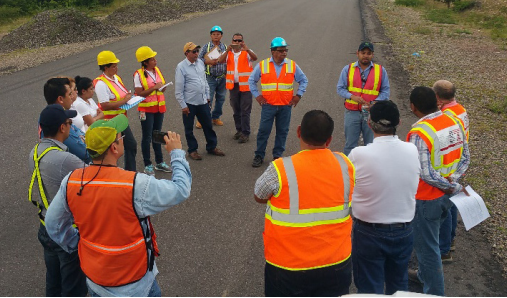In 2023, CoST International will continue promoting the transparency of public infrastructure projects to ensure they are implemented for the benefit of citizens and to improve their lives.
During this year our members in Ecuador and Panama will use the Infrastructure Transparency Index (ITI) methodology for the first time, while Costa Rica will publish the results of its second report. Last year, we wrote about how the tool had been used across Asia.
The ITI is a tool that helps monitor the level of transparency and accountability in the implementation of public infrastructure projects by government institutions associated with the CoST Initiative. The ITI score comes from a weighted sum of four areas:
- Enabling an environment for transparency
- Capacities and processes to publish data
- Citizen participation
- Information disclosure
Transparency and accountability improve the efficiency of the money invested in public infrastructure and contribute to the strength of institutional systems based on observing the CoST Data Standards. Information disclosure supports public infrastructure projects to make it accessible to the public for increased accountability.
ITI results are measured on the availability or non-availability of the information consulted and are independent of the perceptions or judgments of the interviewees.
The ITI does not measure or evaluate the performance of government agencies, the monitoring, accountability, regulation, judicial or investigative activities that exist or may exist in the country.
The ITI was first conducted in Guatemala and Honduras in 2019. Since then, it has been implemented in other countries such as Costa Rica, Sekondi-Takoradi (Ghana), Uganda and Ukraine.
CoST works with governments, the private sector and civil society to promote the disclosure, validation, and interpretation of infrastructure project data. This will help to inform and empower citizens and enable them to hold decision-makers accountable.
Our experience has shown that informed citizens and responsive public institutions help promote reforms that reduce mismanagement, inefficiency, corruption and the risks from poor quality infrastructure to the people.
